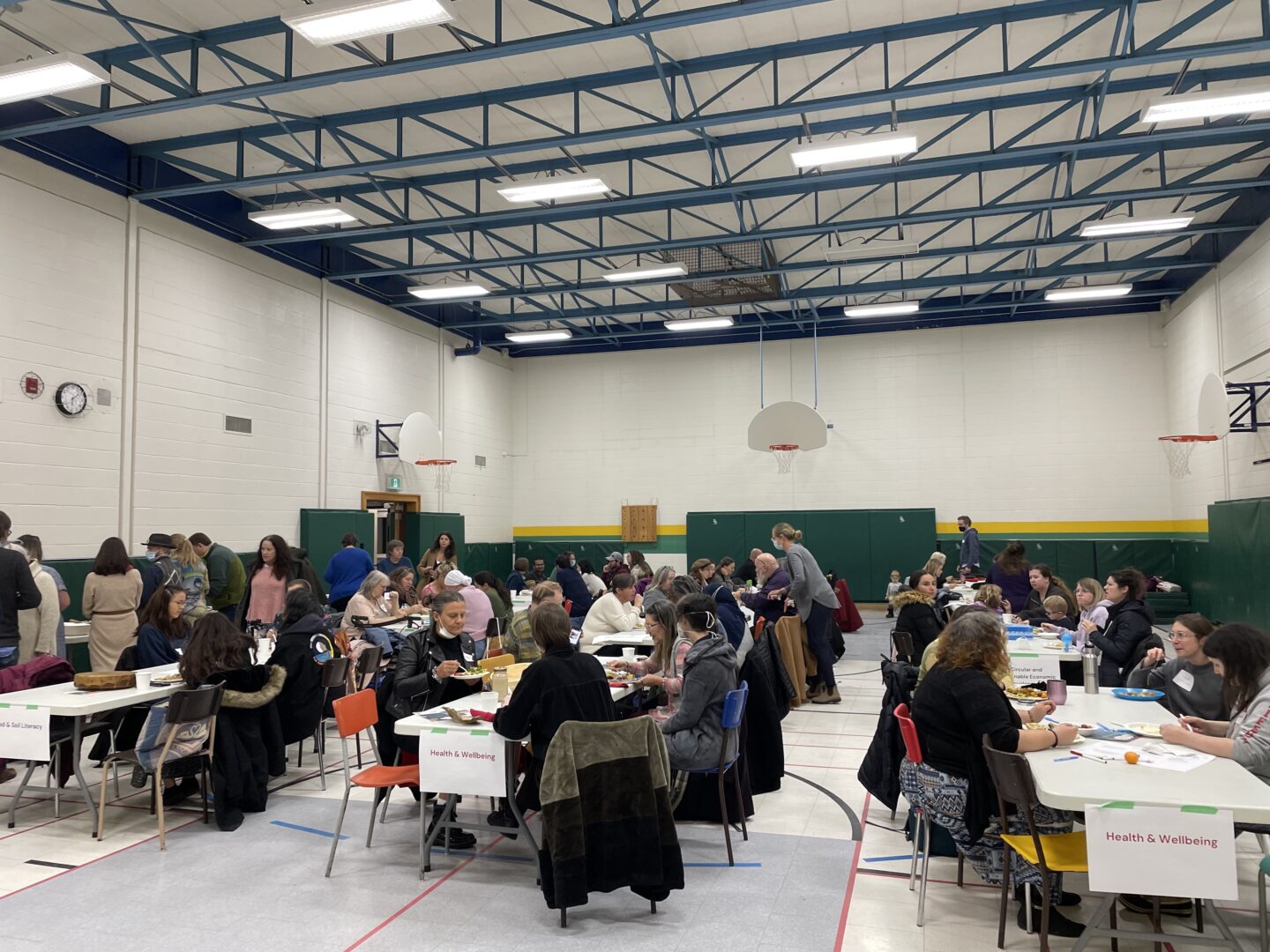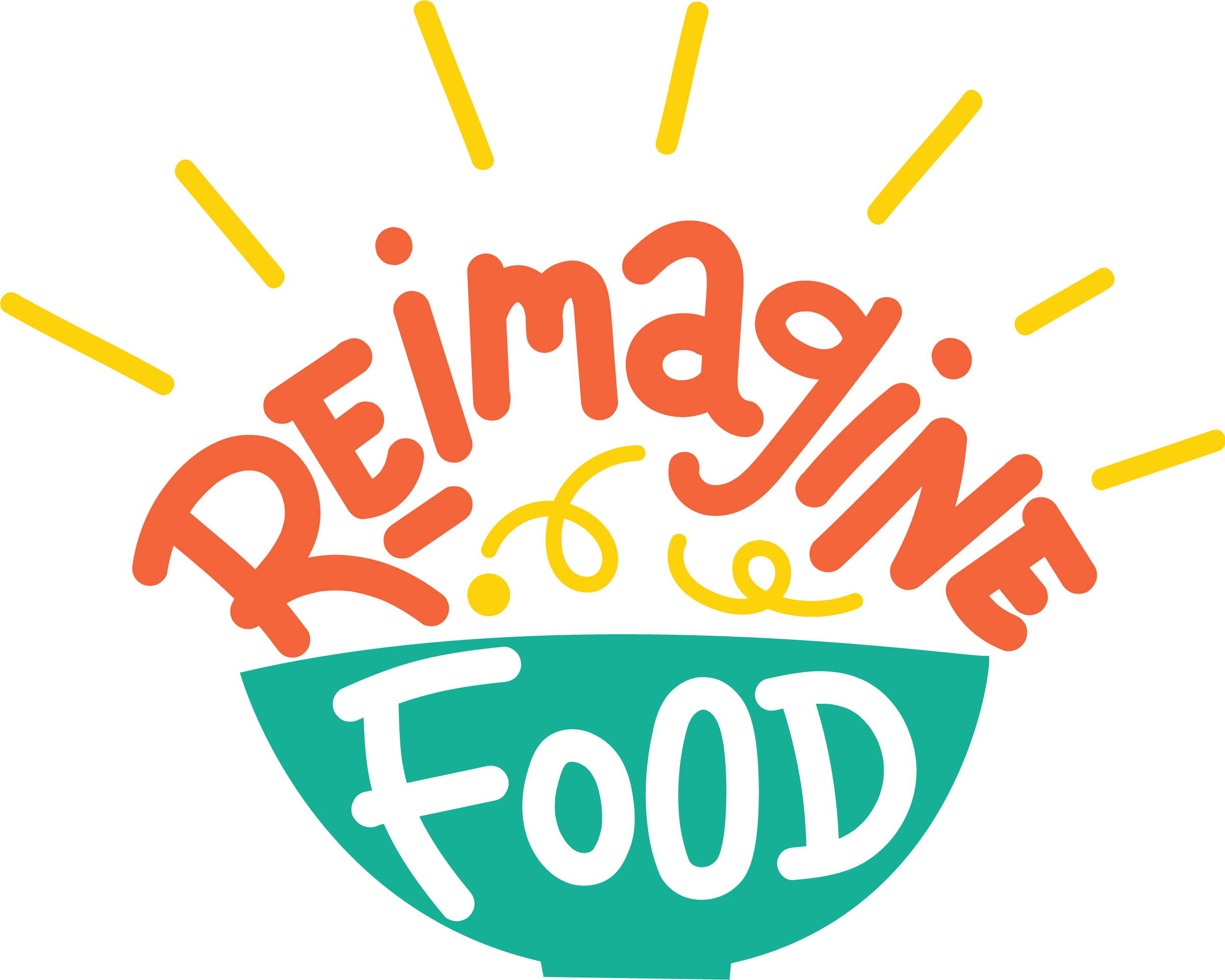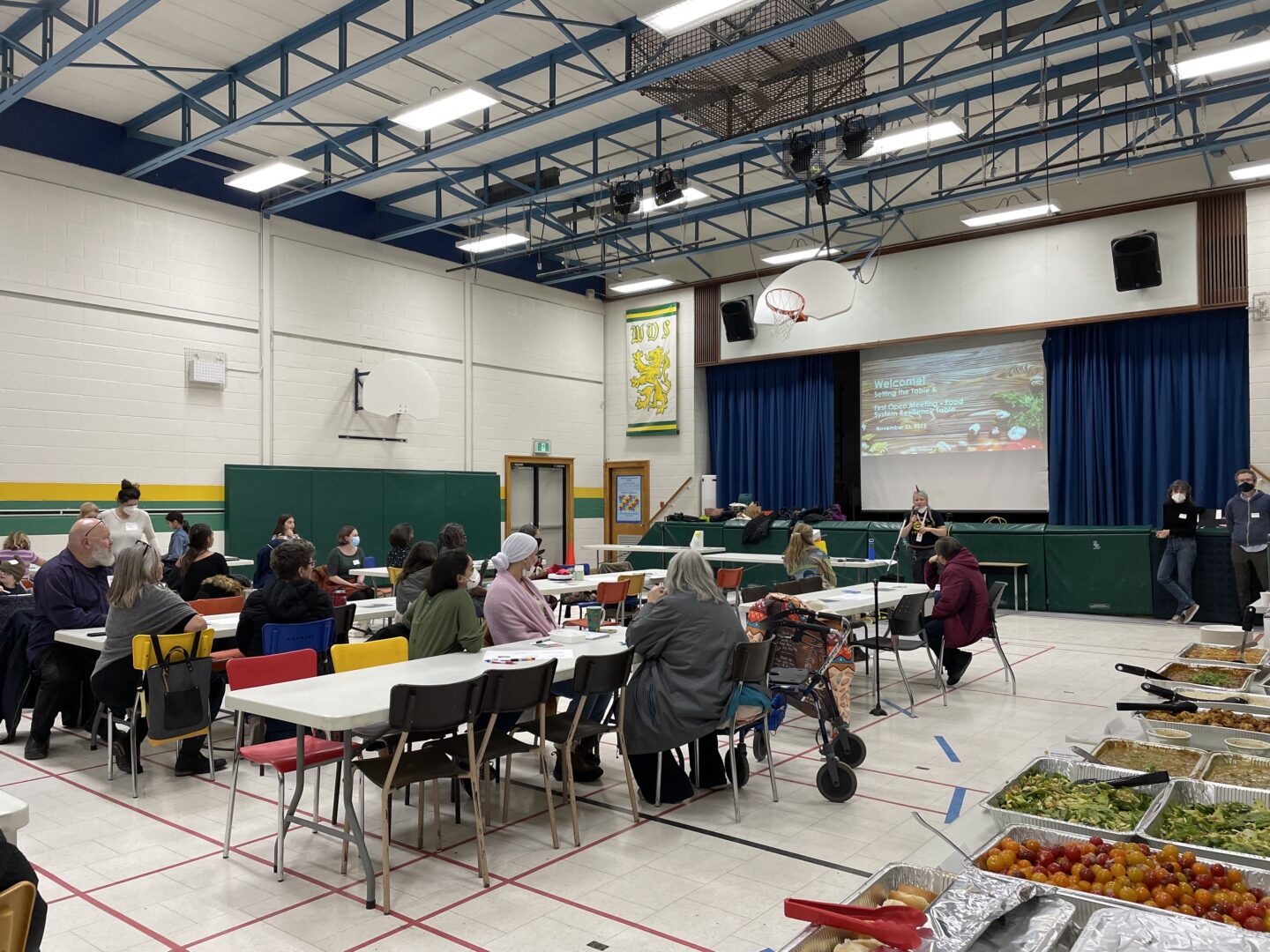Reimagine Food Story: Nutritious Foods Workstream
As many of you probably know, Our Food Future was a project that came out of the $10-million Smart Cities Challenge won by the City of Guelph and the County of Wellington to implement a circular food economy.
When Our Food Future launched in 2020, the project had three bold goals:
- Increase access to affordable, nutritious food by 50%;
- Support 50 new circular food businesses, collaborations and social enterprises; and,
- Increase economic benefit by unlocking the value of waste by 50%.
The Nutritious Foods Workstream (NFW) was a stream of Our Food Future. During the planning phase, the NFW wanted to focus on improving food access to everyone in Guelph. However, the pandemic narrowed their scope. It was decided that this stream would instead focus on increasing access to nutritious food, particularly among those most vulnerable in the Guelph and Wellington communities; an important initiative to help Our Food Future achieve their first goal.

Jess Haines“The NFW was a collaborative effort that brought together a broad spectrum of people thinking about nutritious food access from different ways.”
The main contributors were the University of Guelph, The City of Guelph, The County of Wellington, Public Health at both municipal and provincial levels, and local not-for-profits including the Guelph Community Health Centre, The SEED, 10C, GNSC, and Toward Common Ground. The fusion of collaborators created an interesting cross-section of different sectors working toward a common goal!
In total, the NFW received $400,000 to distribute to community-initiatives. Of that funding, the NFW were able to fund 7 Co-Lab projects, 11 Sparks Grant Projects, and 7 Strategic Collaborations. The NFW used a transparent process to identify what monies were available and could be used most effectively. There were three main approaches used to distribute the funds: priorities identified and funded by community agencies; an open competition approach; and, projects identified by NFW members. Projects were funded on an ongoing basis throughout the duration of the NFW timeline.
The NFW garnered community collaboration in more ways than one.
Jess Haines“One of the real benefits is that there’s been synergy where there used to be siloes.”
An example of such synergy was the role of the community agencies. During the initial phase of the NFW, community agencies that provided emergency food during COVID-19 connected with the NFW members. Together, the community agencies decided that instead of working independently and competing with other organizations who are working toward the same goal, they should take some funding and determine how to divide the funds based on their knowledge and experience. As a result of this cooperation, the community agencies worked together to identify the priorities and distribute funds leading to the support of 7 co-lab projects.
Jess Haines“Our ability to respond to the community and the fact that we were all-together made sure that that kind of synergy happened instead of competition.”

Community FEWD (previously featured in a Reimagine Food local impact story) is an example of a community-initiative that received NFW funding. FEWD takes a circular approach to improving food access by upcycling surplus food into restaurant quality community meals, free of charge!
Although the NFW funding has come to an end, the motivation to continue this work has not! Currently, Julia Grady, Executive Director at 10C, is creating a database that will house information on organizations’ and members strengths and needs, making it easier for future collaboration and project co-creation; an important effort in prioritizing future cooperation for grant funding.
Staying connected as a team has been a priority for the NFW. With strong relationships and a budding network, the team hopes to continue to build upon their previous work. Recently, funding from the NFW, in addition to contributions from the City of Guelph, Wellington County and the University of Guelph, will be used to create a new position that will build upon the work and synergies initiated by the NFW. Stay tuned for more information on the upcoming Community Food Coordinator position.
This story was brought to you by 

